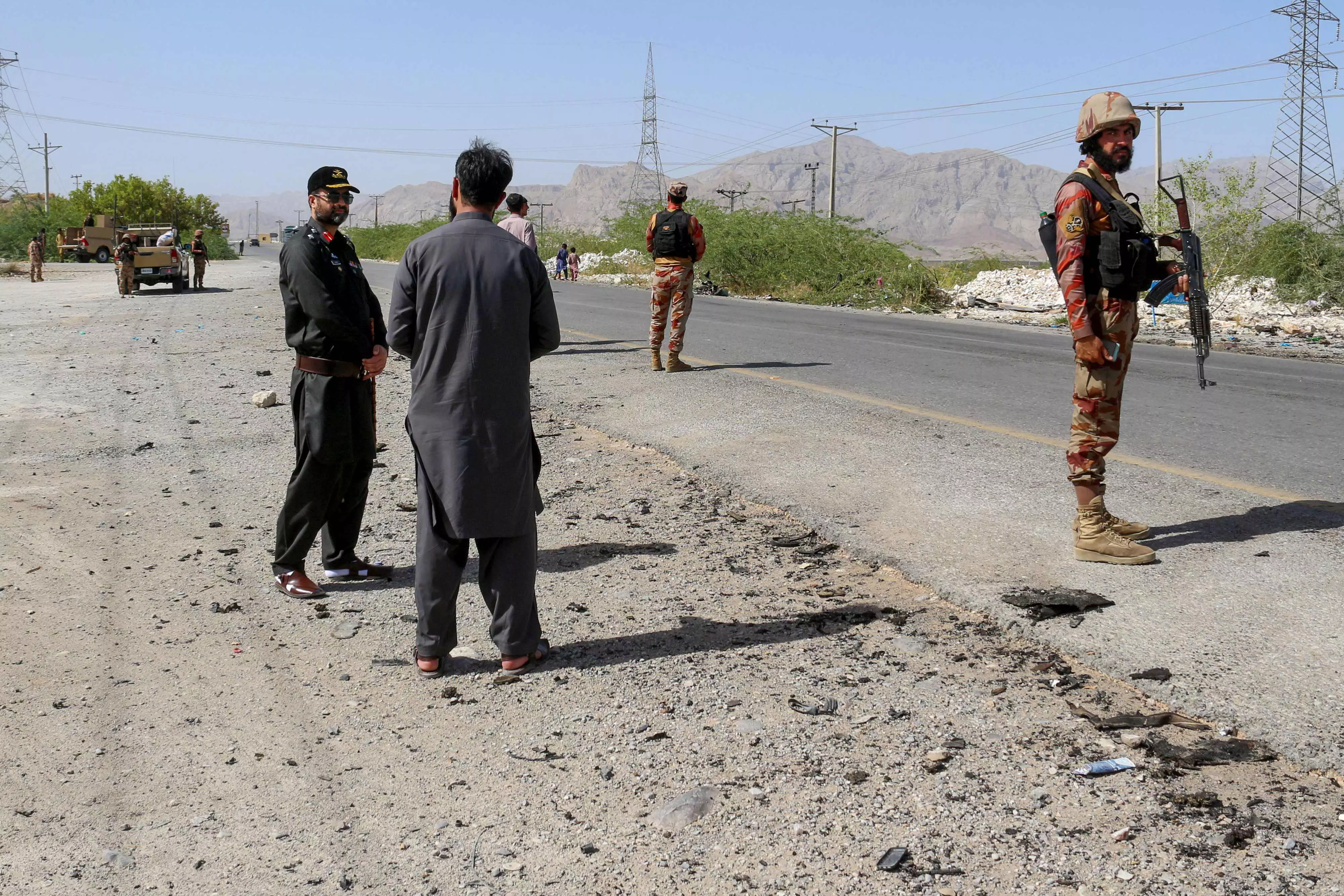Bhopinder Singh | Afghan Taliban & Baloch Issue: Fake Narratives can’t be a Solution for Pak
A deadly cocktail of religious rhetoric with realpolitik under the garb of defending Islamic values legitimised Pakistan’s support for the Talibs (students)

It is high time for the dysfunctional Pakistani State to realise that tilting at windmills or creating false narratives will not help it to solve its major problems. The origin of its relationship with the Taliban in Afghanistan are well documented and indisputable. In the early 1990s the Pasthun students in the madrasas (Islamic seminaries) around Quetta were knowingly supported and nurtured by Pakistan’s Inter-Services Intelligence (ISI) with generous funds from the Arab sheikhdoms and even America’s Central Intelligence Agency (CIA) initially to fight the war in Afghanistan. The end of the Cold War, the Soviet Union’s withdrawal from Afghanistan and its subsequent collapse, and the final removal of the Najibullah-led Communist regime in Kabul ended America’s interest in the Mujahideen movement, but the Pakistanis still persisted with their selective patronage among the competing warlords, such as Gulbuddin Hekmatyar, to fructify its regional dreams of “strategic depth” in Afghanistan, with a pliant regime in Kabul.
A deadly cocktail of religious rhetoric with realpolitik under the garb of defending Islamic values legitimised Pakistan’s support for the Talibs (students). The long-term implications of over-flexing religion as a tool were dangerously ignored as Pakistan chose factions like those of Mullah Omar, the Quetta Shura, the Haqqani Network, etc, the most extremist and hardline of the groups. The diplomatic cables revealed by WikiLeaks in 2011 listed the famous warning by then US secretary of state Hillary Clinton that “snakes in the backyard cannot only attack neighbours”. This unheeded warning of over-pandering to religiosity was to haunt Pakistan, ironically once its own creation -- the Taliban -- took over Afghanistan once again in 2021! Today, Islamabad and Kabul are engaged in a no-holds barred confrontation, directly or through their proxies, which confirms the age-old wisdom of keeping religious matters on the backburner as they can never really be controlled by any force, once the genie of religious extremism is unleashed.
However, the incorrigible Pakistani State has decided to take on the battle with the Afghan Taliban, not by accepting its own follies and ruthless ambitions of the past, but militarily and, incredulously so, by attempting to outdo the Taliban over faith and ideology. It has officially decided to designate the Tehreek-e-Taliban Pakistan (TTP) as “Fitna al-Khawarij”, and therefore the prefixing Pakistani Taliban functionaries as “Khariji” -- referencing them to a despised breakaway group of mainstream Islam from the times of the first Fitna (civil war). The Pakistani State hopes to discredit the ostensibly “bigoted” approach of the TTP by theologically relabelling them in order to stigmatize its appeal.
While it is true that ideological narratives fuel the appeal of the likes of the Taliban, it is a case of belated, inadequate and convenient wisdom dawning on the Pakistani State after playing so recklessly with religion themselves.
Keeping with the distractive and inefficacious tactics of renaming groups and movements to suit its ulterior motives without truly addressing its own mis-steps is yet another nomenclature by the Pakistani State – “Fitnah al Hindustan”. With its ostrich-like head-in-the-sand denialism of its countless and brutal acts of commission and omission in Balochistan since independence, it has clubbed groups like the Balochistan Liberation Army and other Baloch insurgency groups as part and parcel of some imaginary “Fitnah al Hindustan”. None less than the director-general of Inter-Services PublicRelations (ISPR), Lt. Gen. Ahmed Sharif Chaudhry, expounded repeatedly on the new umbrella term, “Fitnah al Hindustan”, to be behind deadly strikes like the recent Khuzdar attack in Balochistan.
The subtle difference between the so-called “Fitnah al Khawarji” and “Fitnah al Hindustan” is that the former is seemingly an ideological battle between the true believers of Islam (read Pakistan) versus its puritanical and extremist strain (read Taliban), whereas the latter refers to the “dark” Indian plan based on ethnic nationalism and local alienation. If the “truer” version of Islam is sought to discredit and delegitimise the Taliban, the conflation of “India” to the Baloch insurgent groups a bid to discredit the Baloch appeal as “anti-national”.
It is, however, always easier to create new nomenclatures than to genuinely evince the required acceptance and resonance from the disaffected masses. There are too many known machinations and indefensible Pakistani historical actions that binds its national narrative in turning Afghanistan into a religious cauldron, just like the underlying discrimination and disillusionment among the Baloch people against the Pakistani State, to allow Islamabad to absolve itself from the blame game. There is too much blood (even infamous disappearances) that has spilled in the unforgiving swathes of Balochistan or along the unmanned and unrecognised Durand Line (Afghan-Pak border) -- both of which are ironically thousands of miles away from the Indian mainland to afford any sort of logistical support.
The enormity of the self-inflicted security situation in Pakistan can be gauged by the DG-ISPR himself accepting that “we have carried out more than 93,000 operations across Pakistan in one and a half years”. Blaming the attacks on Pakistan soil as having been the work of “Indian proxy” groups, or now by “Fitnah al Hindustan”, is to play the same old record on loop, hoping to hear a new song! Putting its own house in order will require more serious introspection, honesty, and course correction, with the Baloch people and the forces that created the Taliban. Distractive means like coining new nomenclatures, promoting the Army chief to Field Marshal, after yet another disastrous conflict for Pakistan, or celebrating “victory” is tantamount to tilting at windmills -- something that had resulted over half a century ago in the splitting of Pakistan into two irreconcilable parts, which too was due to its own misdoings, discrimination and unhinged politics.
